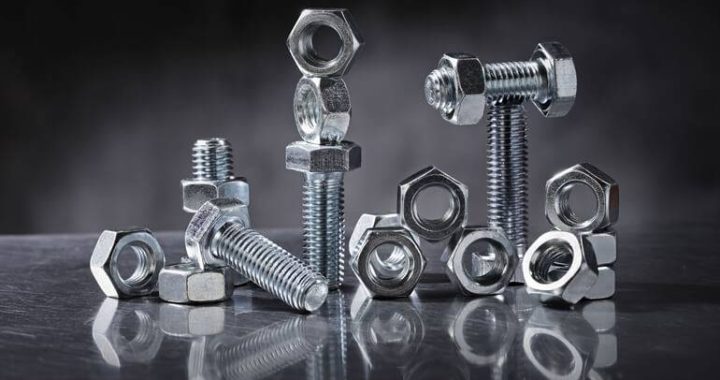When it comes to construction, DIY projects, or industrial applications, the choice of fasteners plays a crucial role in overall performance and longevity. Selecting the right material ensures that joints remain secure and resistant to wear over time. Among the most trusted materials available, stainless steel fasteners stand out for their exceptional durability, corrosion resistance, and visual appeal.
Understanding Stainless Steel Fasteners
Stainless steel is an alloy primarily made of iron, chromium, and other elements like nickel and molybdenum. The presence of chromium gives it its defining characteristic—resistance to rust and corrosion. Fasteners made from stainless steel are ideal for environments where moisture, chemicals, or salt exposure can damage ordinary metals. Whether you’re working on marine projects, outdoor fittings, or high-humidity environments, these fasteners maintain their integrity far longer than standard steel options.
There are several grades of stainless steel used in fasteners, each offering unique benefits. The most common ones include 304 and 316 stainless steel. Grade 304 is the general-purpose option, known for its balance of strength and affordability, while grade 316 offers enhanced corrosion resistance, particularly against saltwater and chemicals.
Key Benefits of Choosing Stainless Steel
The biggest advantage of stainless steel fasteners lies in their ability to resist rust. This makes them perfect for outdoor use, ensuring your work stays secure and visually appealing even after years of exposure.
Another major benefit is their strength. Stainless steel retains its mechanical integrity under both high and low temperatures, making it suitable for demanding environments. Additionally, these fasteners have a naturally shiny, polished appearance that complements modern designs and professional finishes.
Stainless steel also offers long-term value. While the initial cost might be higher than alternatives like zinc-plated or mild steel, the low maintenance and extended lifespan make it a cost-effective investment over time.
Choosing the Right Type of Fastener
Different applications require different types of fasteners, from bolts and screws to washers and nuts. Understanding which one suits your project helps ensure maximum performance.
Bolts and Screws are ideal for creating secure joints in metal and wood structures. For structural or heavy-duty uses, hex bolts or machine screws are typically preferred.
Nuts and Washers play an essential role in distributing load and preventing loosening. Stainless steel washers reduce surface damage, while locking nuts provide added stability in vibrating environments.
Self-tapping Screws are particularly useful for working with thin materials or sheet metal, as they cut their own thread without requiring pre-drilling.
Always ensure that all components—screws, nuts, and washers—are of the same stainless steel grade to avoid galvanic corrosion, which can occur when dissimilar metals are used together.
Understanding Grades and Finishes
Selecting the correct grade is crucial. For most household or indoor projects, 304 stainless steel is sufficient. However, for marine environments or applications near coastal areas, 316 stainless steel provides superior protection against salt-induced corrosion.
In addition to grades, stainless steel fasteners come in different finishes. Polished finishes enhance visual appeal, while passivated finishes further strengthen corrosion resistance. When aesthetics matter—such as in architectural fittings—a polished finish often delivers the best result.
Factors to Consider Before Buying
Before purchasing stainless steel fasteners, consider the following aspects:
Environment: Will the fasteners be exposed to moisture, chemicals, or salt? If so, a higher-grade stainless steel will be necessary.
Load Requirements: For heavy or structural loads, always check the tensile strength and thread type to ensure they can handle the pressure without deformation.
Compatibility: Pairing stainless steel with aluminum or carbon steel components can lead to galvanic corrosion. Using identical or compatible metals prevents this issue.
Size and Thread Type: Ensure you select the right length, diameter, and thread pattern for a tight and reliable fit. Metric and imperial measurements are not interchangeable, so double-check before buying.
Maintenance and Longevity
Although stainless steel fasteners are designed for low maintenance, occasional cleaning helps retain their shine and prevent surface deposits that could lead to discoloration. Use mild soap and water or a non-abrasive cleaner to remove any build-up of dirt or salt.
Avoid using steel wool or harsh scrubbing pads, as they can leave residues that may cause localized rusting. Regular inspection, especially in marine or industrial settings, ensures fasteners remain in excellent condition.
Final Thoughts
Investing in high-quality stainless steel fasteners ensures your project stands the test of time. Their resistance to corrosion, impressive strength, and sleek finish make them suitable for both functional and decorative applications.
Whether you’re building furniture, assembling machinery, or working on outdoor structures, the right fasteners can make a significant difference in both performance and appearance. By understanding grades, finishes, and environmental factors, you can confidently choose the perfect stainless steel fasteners that combine strength, style, and lasting reliability.

